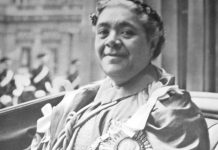One of Tonga’s greatest female singers and composers, Tu’imala Kaho said her thirst for romance when she was 18 forced her to start composing love songs on her own.
Her mother, ‘Anamalia Kaho, was a poetess and Tu’imala said she did not want her mum to compose her love songs.
Tu’imala, 76, said the environment she grew up in was poetic. Apart from her mother her uncle, ‘Anamalia’s brother Vaisima Hopoate, was another great poet and musician.
Hopoate was sent by the late Queen Sālote Tupou III, who is regarded by many as the greatest punake of modern Tonga, to compose and teach Tongan lakalaka compositions and performance for the queen’s kāinga at Kanokupolu.
“I learnt while I was young about the language to be used when referring to nobility and royalty,” Tu’imala told Kaniva.
She said this was vital in composing Tongan songs and music.
“You have to make sure that you do not mix the language and use words for commoners to royals. That’s disrespectful,” Tu’imala said.
“It is not an easy task. There are too many changes and thinking involved before you get a good song and music,” Tu’imala said.
The first song she composed was Taumaiā Ke ke ‘Iloa, a song she composed to a man she knew. She fell in love with him when he left to work in Vava’u as a Police Inspector.
Tu’imala said she composed the song and asked her cousins, who were brought up together with her to practice and record it.
Figure of Speech
Tu’imala said the most fragrant flowers in Tonga were classified as Kakala ‘Eiki or chiefly flowers. These included nukonuka, tuitui, pipi, ahi, fa, heilala, mohokoi and maile.
The less important flowers and plants, such as mo’osipo were kakala vale, would be used in songs if the composers were referring to commoners.
Tu’imala said when she became seriously involved in singing and performing, songs were strictly scrutinised by a national music committee before being passed to be aired on the national radio.
She said on one occasion the king attended the committee while scrutinising some songs and in one song a composer referred to his lover as heilala.
The performance was stopped and one of the committee scrutineers, Taimani Fotu, asked the composer to explain his usage of the plant heilala in his song.
After the composer confirmed he was referring to his lover, the song was rejected and the composer was told to go back and correct that part of his song.
Tu’imala said the king appeared to have felt for the composer and suggested that the song should be aired because she was referring to his lover. However, Fotu insisted that if they passed the composer’s song than they were allowing something wrong to air.
Her musicianship
Apart from the talent being in her blood and family, Tu’imala said she was schooled in musicianship by the Roman Catholic nuns at ‘Ahopanilolo.
“The nuns loved my songs and they encouraged me to sing regularly and sing in front of them. I thought that was unimportant, but I later realised this was really important for my career,” Tu’imala said.
She also learnt music and how to sing professionally from the late Professor Futa Helu.
She said she helped Professor Helu in many concerts held to raise funds to help build the ‘Atenisi Institute.
Her first husband was a former Roman Catholic priest who taught Tu’imala some Latin music and songs.
Her second husband was the late Lord Ma’afu Tukui’aulahi who was a Seventh Day Adventist.
“When I had to lead prayer services at church I used to sing them,” Tu’imala said.
She also composed many religious songs.
You may also like these:
Song reveals struggle to bear criticism Tu‘imala received after her daughter married prince
Song reveals connection between Tu’imala and King of Ukulele, Sione ‘Āleki







